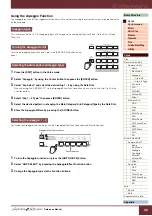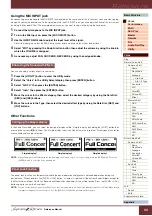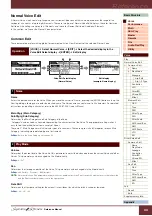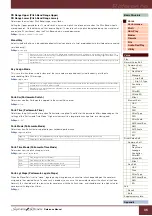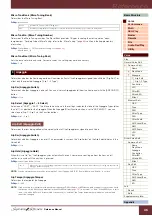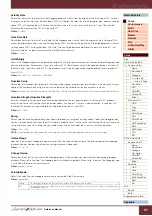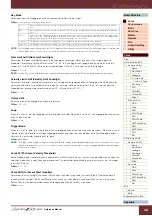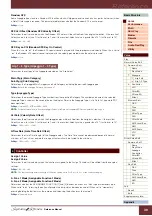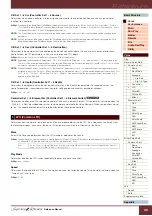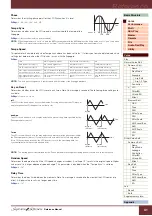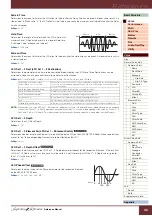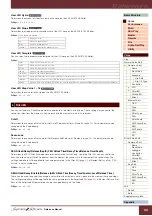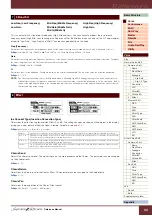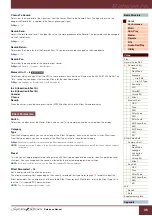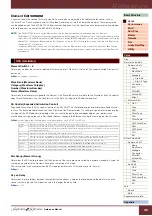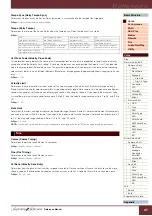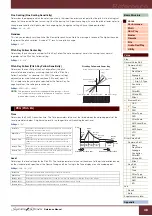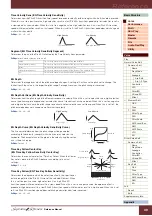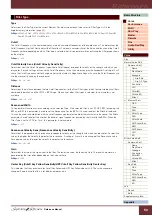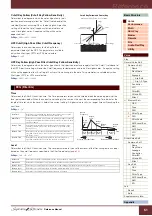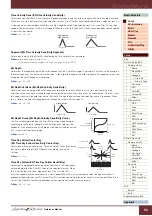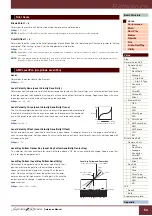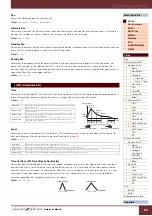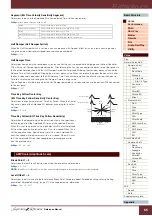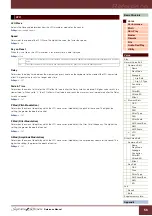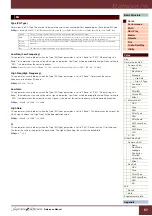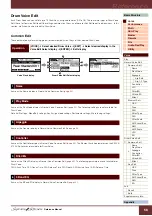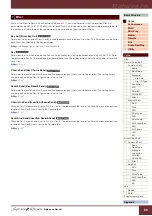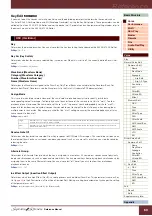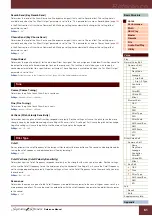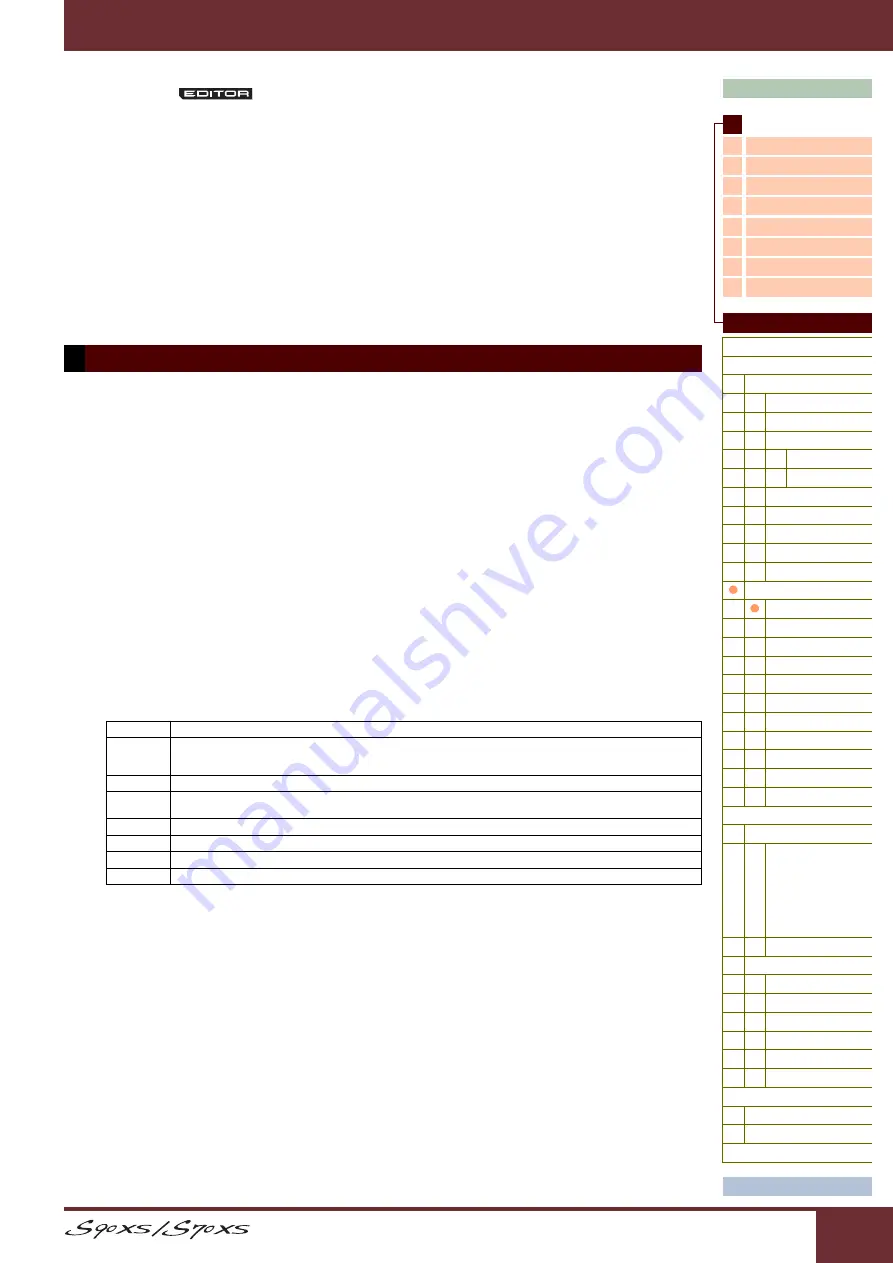
Reference Manual
Reference
46
Name
Play Mode
Arpeggio
Controller
Filter/EG
3 Band EQ
Element Edit
If you wish to edit the sounds that make up a Voice and the basic parameters that determine the sound, such as
Oscillator, Pitch, Filter, Amplitude, and EG (Envelope Generator), call up the Element Edit display. These parameters
can be edited only on the S90 XS/S70 XS Editor, and not the device itself. For details on each parameter setting window,
refer to the owner’s manual of the S90 XS/S70 XS Editor.
NOTE:
The S90 XS/S70 XS lets you set the Element level, turn the Element Switch on/off, and change the Solo Element.
The Number [1] – [8] buttons let you select the Element while the Number [9] – [16] buttons let you switch the Element on/off and
select the Solo Element. By pressing the [MUTE] button so that the [MUTE] lamp lights, you can switch the Element on/off via the
Number [9] – [16] buttons. By pressing the [SOLO] button so that the [SOLO] lamp lights, you can select the Solo Element via
the Number [9] – [16] buttons.
In the Voice Edit mode, you can also use the Sliders to control the Element level of the normal Voice when the Slider Function
button is set to “REV SEND” and you press the Slider Function button several times so that all the lamps of the Slider Function
are turned off.
Element Switch 1 – 8
Determines whether the currently selected Element is on or off. When this is set to off, the currently edited Element will
not sound.
Settings:
off (inactive), on (active)
Wave Bank (Waveform Bank)
Category (Waveform Category)
Number (Waveform Number)
Name (Waveform Name)
Determines the Waveform assigned to the Element. Only Preset Banks are available for the Waveform Bank. For details
about Preset Waveforms, see the Waveform list in the Data List (separate PDF documentation).
XA Control (Expanded Articulation Control)
Expanded Articulation (XA) is a special feature of the S90 XS/S70 XS that provides greater performance flexibility and
realism. This parameter determines how the XA feature of the Element works. Try setting this parameter referring to the
five types of the XA Mode described below. You can realize the desired sound depending on your performance
articulation by assigning the same Elm Group (Element Group) to the Elements having the same type of the XA mode.
Settings:
normal, legato, key off sound, wave cycle, wave random, all AF off, AF 1 on, AF 2 on
Elm Group (Element Group)
Determines the XA Control group so that the Elements of the same group are called up in order or randomly. Assign the
same group number to the Elements having the same type of XA mode.
The setting here is not available when the XA mode parameters of all Elements are set to “normal.”
Settings:
1 – 8
Key on Delay
Determines the time (delay) between the moment that you press a note on the keyboard and the point at which the
sound is actually played. The higher the value, the longer the delay time.
Settings:
0 – 127
OSC (Oscillator)
normal
When this is selected, the Element will sound normally each time you press the note.
legato
When this is selected and the Mono mode is selected, an alternate Element (different from the one used when XA Control is set to
“normal”) will be played when you play the keyboard in legato fashion (playing the next note of a single-note line or melody before
releasing the previous note).
key off sound
When this is selected, the Element will sound each time you release the note.
wave cycle
When this is selected for multiple Elements, each Element sounds alternately according to its numerical order each time you play a
note. (In other words, playing the first note will sound Element 1, the second note will sound Element 2, and so on.)
wave random When this is selected for multiple Elements, each Element will sound randomly each time you press the note.
all AF off
When this is selected, the Element will sound when both of the ASSIGNABLE FUNCTION buttons are turned off.
AF 1 on
When this is selected, the Element will sound when the ASSIGNABLE FUNCTION [1] button is turned on.
AF 2 on
When this is selected, the Element will sound when the ASSIGNABLE FUNCTION [2] button is turned on.

